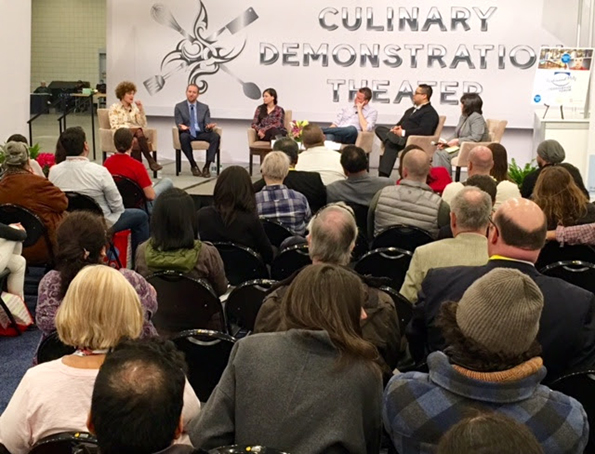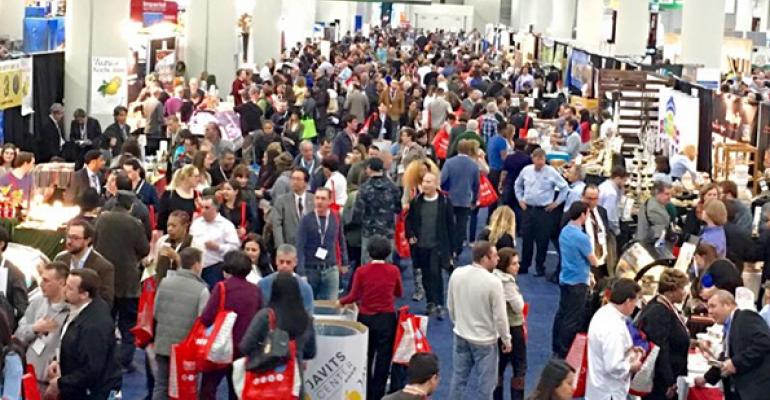More healthful and environmentally sustainable products were prominently displayed at the 23rd annual International Restaurant & Foodservice Show of New York, held last week at the Javits Center in Manhattan.
Educational programs covering the future of tipping and back-of-the-house labor management were also part of the three-day event, which was attended by more than 18,000 foodservice industry professionals, according to Urban Expositions, which produced the show. Some 500 exhibitors displayed their wares, according to the event planning group.
“We had a tremendous event, and we thank the New York State Restaurant Association and their members, our exhibitors, attendees, speakers and press who came out to support the only event in New York exclusively serving the restaurant and foodservice industry,” Ron Matthews, Urban Expositions vice president for the restaurants and foodservice portfolio, said in a press release.
New to the show was the Culinary Demonstration Theater, where attendees could watch presenters including Ricky Estrellado of Nobu, Stephen Yen of the Paige Hospitality Group, Justin MacNeil from Del Posto and certified master chef Fritz Sonnenschmidt.

Other highlights included sake and shochu on display at the Japan Pavilion, and the Taste NY Food & Craft Beverage Showcase, which highlighted more than 40 local companies.
Some new food items included a line of cheese from Wisconsin that was high in Omega-3 oils, due to the diets of the dairy cattle, and a caviar substitute made by forming fish oil and broth into spheres that simulated fish eggs.
With labor shortages a growing concern, especially in terms of qualified cooks in New York restaurants, the Chefs de Cuisine Association of America hosted a panel titled “Building the next culinary brigade,” at which restaurateurs pointed out that small things such as “creature comforts” are important to retaining staff.
Andrew Ladd, executive chef of the New York Athletic Club, said perks such as a pleasant area for staff meals and playing the cooks’ choice of music during off-peak hours could do a lot for morale.
“That’s a small creature comfort that in my kitchen goes a long way,” Ladd said.
Pasquino Vitiello, co-owner of Queen Italian Restaurant, a 58-year-old establishment in Brooklyn, N.Y., said managing climate control in the kitchen and working to reduce stress were also important.
“Things like creature comforts, less of a slam at the peak hours, a little bit more of rotating the staff — shaving the edges off the high points [of stress] I think makes a better environment in the kitchen,” said Vitiello, who has had kitchen staff that worked for 30 years in his restaurant before retiring.
“Our host has been there 33 years,” he added.
Arlindo Fernandez, president of the Chefs de Cuisine Association of America, emphasized the importance of showing that you care about your staff. “Avoid the word ‘I’ and [use] more ‘we’,” he said.
Lutz Lewerenz, president of the Big Apple Chapter of the International Chef Association and American Culinary Federation, pointed to the importance of respecting what your staff does and teaching them what they don’t know.
“If you feel like you have to be always there, otherwise things go wrong, then you didn’t train your help well enough," Lewerenz said.
At the end of the show, more than 10,000 pounds of food was donated to local food rescue organization City Harvest.
Contact Bret Thorn at [email protected].
Follow him on Twitter: @foodwriterdiary





